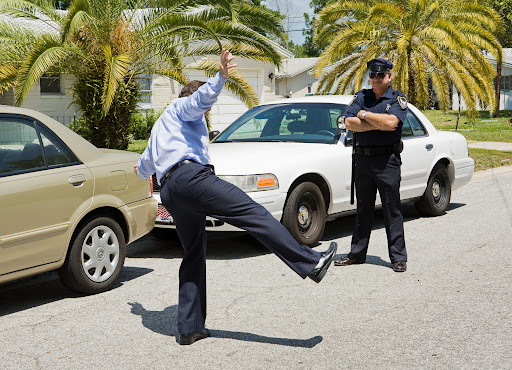
Understanding DUI and DWI Penalties: Laws, Consequences, and DMV Regulations
March 10, 2024Driving under the influence (DUI) and driving while intoxicated (DWI) are serious offenses that can have significant legal and personal consequences. Understanding the difference between DUI and DWI, the associated penalties, and the regulations set forth by the Department of Motor Vehicles (DMV) is crucial for anyone facing these charges.
What is DUI and DWI?
Understanding the Difference Between DUI and DWI
DUI and DWI are terms used to describe the act of operating a motor vehicle while impaired by alcohol or drugs. While the specific terminology varies by state, DUI generally refers to driving under the influence of alcohol, while DWI typically stands for driving while intoxicated, often in the context of impairment from both alcohol and other substances.
Consequences of a DUI or DWI Offense
The consequences of a DUI or DWI offense can be severe and may include fines, license suspension or revocation, and even jail time. In addition to the legal penalties, a DUI or DWI conviction can also have long-term impacts on one’s driving record and personal life.
Impact of DUI and DWI on Motor Vehicle Records
When a person is convicted of a DUI or DWI offense, it typically results in a significant increase in insurance premiums and may also have implications for future employment opportunities, as many employers conduct background checks that include driving records.
What are the Penalties for DUI and DWI?
Fines and Monetary Penalties for DUI and DWI Convictions
A first-time DUI or DWI offense can result in substantial fines, which may vary depending on the state and the specific circumstances of the case. These penalties are designed to deter individuals from driving under the influence and to serve as a consequence for their actions.
License Suspension and Revocation for DUI and DWI Offenses
One of the most significant penalties for a DUI or DWI offense is the potential suspension or revocation of the individual’s driver’s license. This restriction on driving privileges can have a profound impact on daily life, making it challenging to commute to work, school, or fulfill other responsibilities.
Jail Time and Other Criminal Penalties for DUI and DWI
In addition to fines and license-related penalties, those convicted of DUI or DWI may face jail time, especially in cases involving repeat offenses or aggravated circumstances such as accidents resulting in injury or loss of life. These criminal penalties serve as a deterrent and punishment for impaired driving.
How Does BAC Level Affect DUI and DWI Penalties?
Legal BAC Limits and Implications for DUI and DWI Cases
Many jurisdictions have established legal limits for blood alcohol concentration (BAC), with 0.08% being the standard threshold for impairment. Drivers found to have a BAC at or above this level are typically subject to DUI or DWI charges, and the associated penalties become more severe as BAC levels rise.
Enhanced Penalties for High BAC Levels
In cases where the driver’s BAC significantly exceeds the legal limit, the penalties for DUI or DWI may be enhanced, leading to increased fines, longer license suspension or revocation periods, and a heightened likelihood of facing jail time.
Impact of BAC on License Suspension and Revocation
BAC levels also play a crucial role in determining the duration of license suspension or revocation, with higher BAC levels often leading to more prolonged and substantial restrictions on driving privileges.
What are the DMV Regulations for DUI and DWI Offenders?
Ignition Interlock Device Requirements for DUI and DWI Offenders
Many states mandate the use of ignition interlock devices for individuals convicted of DUI or DWI. These devices require the driver to pass a breathalyzer test before starting the vehicle, serving as a measure to prevent further instances of impaired driving.
DMV Chemical Test and Compliance for DUI and DWI Cases
Following a DUI or DWI arrest, the DMV may require the individual to undergo chemical testing to determine their BAC levels and compliance with state laws. Failure to adhere to these regulations can result in additional penalties and consequences.
DMV Administrative Hearings for DUI and DWI License Suspensions
Individuals facing license suspension or revocation following a DUI or DWI arrest have the right to request an administrative hearing with the DMV to contest the decision. These hearings provide an opportunity to present evidence and arguments to potentially retain or reinstate driving privileges.
How are Repeat Offenses of DUI and DWI Penalized?
Penalties for Second and Subsequent DUI and DWI Offenses
Repeat DUI or DWI offenses are subject to increasingly severe penalties, including higher fines, longer license suspensions, and a greater likelihood of facing incarceration. These penalties are intended to address the escalating risk posed by individuals with multiple impaired driving convictions.
Mandatory Sentences and Aggravated Penalties for Repeat Offenders
Some jurisdictions impose mandatory minimum sentences for repeat DUI or DWI offenders, further amplifying the consequences of subsequent offenses. Aggravating factors, such as causing accidents or injuries while impaired, may lead to heightened penalties.
Long-Term Consequences for Multiple DUI and DWI Convictions
Individuals convicted of multiple DUI or DWI offenses may face long-term consequences, including the potential classification of subsequent offenses as felonies, which can have profound implications for their personal and professional lives.
What are the consequences of a DUI conviction?
A DUI conviction can result in fines, license suspension, community service, and even jail time, especially for repeat offenders.
Can my driver’s license be suspended for a DUI or DWI conviction?
Yes, a DUI or DWI conviction can lead to driver’s license suspension or revocation, depending on the severity of the offense and the state laws.
What is the legal blood alcohol content (BAC) limit for driving?
The legal BAC limit for driving is typically 0.08 in most states, but it can be lower for individuals under 21 years of age or for commercial drivers.
How does a DUI conviction affect my car insurance?
A DUI conviction can lead to significantly higher car insurance premiums and may even result in the cancellation of your policy by some insurance companies.
What are the penalties for a second or subsequent offense within a certain time frame?
Penalties for a second or subsequent DUI or DWI offense within a certain time frame can include higher fines, longer license suspension, and potential felony charges.
Can I drive with a restricted license after a DUI or DWI conviction?
In some cases, individuals may be able to obtain a restricted license that allows them to drive to specific locations, such as work or school, during their license suspension period.
What is the difference between DUI and DWI?
While the terms DUI (driving under the influence) and DWI (driving while intoxicated) are used interchangeably in some states, others differentiate between them based on the level of impairment or the substances involved.
Are there alternatives to jail time for a DUI or DWI conviction?
Some individuals may be able to fulfill their sentence through alternative methods such as community service, mandatory alcohol education programs, or electronic monitoring.
What are the potential consequences of an open container of alcohol in a vehicle?
Having an open container of alcohol in a vehicle can result in fines, points on your driving record, and potential license suspension, even if the driver is not intoxicated.
How does DUI or DWI conviction impact employment opportunities?
A DUI or DWI conviction could impact employment opportunities, especially for roles requiring driving, operating heavy machinery, or positions that involve a high level of trust.
Conclusion
After reviewing the various aspects of drunk driving laws, it is clear that there are severe consequences for individuals convicted of driving under the influence. A first offense of drunk driving can result in a misdemeanor charge with potential penalties such as license suspension, fines, and even jail time. However, if a person commits a second offense within a certain period, the severity of the consequences increases. Some states have implemented zero tolerance laws for drivers under the age of 21, meaning any amount of alcohol in their system can lead to penalties. For those with a high blood alcohol concentration or who have been convicted of DWI within 10 years, the penalties can be even more severe, possibly leading to a felony DUI charge.
In cases where an individual is involved in an accident while under the influence of alcohol or drugs, the penalties can be even more severe. A third or subsequent conviction within five years could result in lengthy license suspensions, and the requirement to install an ignition interlock device on their vehicle. These measures are put in place to prevent repeat offenses and protect the safety of others on the road. Additionally, if a driver has their license suspended for 90 days due to a DWI conviction, and they are caught driving during that period, they may face even harsher penalties.
Overall, the penalties for a DWI conviction can have a significant impact on a person’s life, affecting their ability to drive, work, and carry out daily tasks. It is crucial for all drivers to understand the laws and consequences surrounding drunk driving, and to always make responsible decisions when it comes to driving a vehicle under the influence of drugs or alcohol. By staying informed and following the laws, individuals can help prevent accidents and keep our roads safe for everyone.


